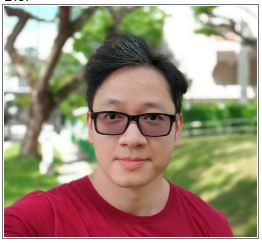Buổi seminar đầu tiên vào thứ 5, ngày 3/3/2022 (20h-21h30) bao gồm 2 bài giảng:
Talk 1: Choices Are Not Independent: Stackelberg Security Games with Nested Quantal Response Models
Abstract.
The quantal response (QR) model is widely used in Stackelberg security games (SSG) to model a bounded rational adversary. The QR model is a model of human response from among a large variety of prominent models known as discrete choice models. QR is the simplest type of discrete choice model (i.e., multinomial logit model) and does not capture commonly observed phenomena such as correlation among choices. We introduce the nested QR adversary model (based on the nested logit model in the discrete choice framework) in SSG which addresses shortcomings of the QR model. We present a tractable approximation of the resulting equilibrium problem with nested QR adversary. We do so by deriving an interesting property of the equilibrium problem, namely a loosely coupled split into nested problems that mirrors the nested decision-making by the adversary in the nested QR model. We show that each separate nested problem can be approximated efficiently and that the loosely coupled overall problem can be solved approximately by formulating it as a discretized version of a continuous dynamic program. Finally, we conduct experiments that show the scalability and parallelizability of our approach, as well as the advantages of the nested QR model. Our work can also tackle previously unaddressed constrained pricing problems in the product pricing literature.
Bio.
Tien Mai is an assistant professor at School of Computing and Information Systems, Singapore Management University. He holds a Ph.D. in Operations Research from University of Montreal. Prior to SMU, he was a postdoc scholar at Singapore-MIT Alliance for Research and Technologies and Massachusetts Institute of Technologies. His work has been recognized by the INFORM-TSL Dissertation Prize for best doctoral dissertation in the area of transportation science and logistics, the Eric Pas Dissertation Prize for best doctoral dissertation in travel behavior research, and a Best Paper Award from the European Association for Research in Transportation. His research interests include data-driven optimization, discrete choice modeling, and imitation learning, with applications in transportation modeling, revenue/workforce management, and security game.
Talk 2: An overview of recent applications of time-expanded networks to combinatorial optimization problems.
Abstract: In this talk, we present the dynamic discretization discovery method based on the time-expanded network approach, which has been applied to solve some classes of combinatorial problems such as Network Designs, Shortest Path Problems, and Vehicle Routing Problems, etc. We will go into more details how the method has been applied to solve several variants of the Traveling Salesman Problems. The advantages and disadvantages of the approach and some open questions will also be discussed.
Bio : Dr. Duc-Minh Vu is a lecturer at the Faculty of Computer Science, Phenikaa University. In 2014, he graduated from the University of Montreal with a Ph.D in Computer Science and Operations Research. Between 10/2015 and 06/2021, he carried out postdoctoral research at different universities in the US, UK and France for various research topics in the field of transportation and logistics. His research interests include exact and heuristic methods for combinatorial optimization problems with applications in logistics, transportation, and telecommunications. In 2021, he was awarded a SIG award from INFORMS for one of his papers published in 2020. He has published several papers in high-ranking journals such as Transportation Science, European Journal of Operations Research, Computers and Operation Research, etc. Furthermore, he has served as a referee for peer-reviewed journals and conferences, including Computers and Operations Research, Journal of Heuristics, Journal of Combinatorial Optimization, and IMA Journal of Applied Mathematics, among others.

